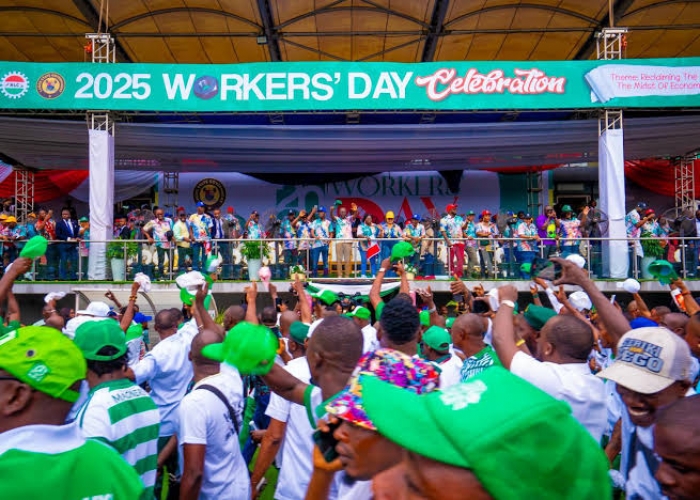President Bola Tinubu has openly acknowledged the severe economic hardship facing Nigerians, admitting that hunger, unemployment, and insecurity are real and demand urgent solutions. His admission comes as workers nationwide marked May Day amid skyrocketing living costs, mass job losses, and escalating violence.
Speaking through the Minister of Labour and Employment, Muhammad Dingyadi, at the Workers’ Day celebration in Abuja, Tinubu stated: “I am aware of the peculiarities of the economic hardship Nigerians face—rising living costs, hunger, insecurity, unemployment, and the loss of livelihoods. These challenges are real and demand definitive solutions.”
Dire Statistics Highlight National Crisis
The President’s acknowledgment aligns with grim economic and security data:
- Inflation has surged to 33.69%, the highest in 28 years, with food inflation hitting 40.53%, making basic meals unaffordable for millions.
- Unemployment remains catastrophic, with underemployment at 70%, youth joblessness exceeding 40%, and over 60 multinational companies (including GlaxoSmithKline and P&G) exiting Nigeria since 2023 due to harsh business conditions.
- Poverty has deepened, with 115 million Nigerians in absolute poverty and 175 million suffering multidimensional deprivation, according to UNDP’s Human Development Index.
- Insecurity has crippled farming and livelihoods, with banditry and terrorism contributing to food shortages. Nigeria ranks 109th out of 125 on the Global Hunger Index.
Labour’s 20-Point Demand: End Bloodshed, Poverty Wages
Organized Labour, led by the Nigeria Labour Congress (NLC) and Trade Union Congress (TUC), presented a 20-point demand to the Federal Government, including:
- Reversing anti-worker policies, such as unfair taxation and privatization of essential services.
- Implementing a living wage to match economic realities, as the current N70,000 minimum wage is now worth less than N15,000 in 2019 terms.
- Ending killings and kidnappings nationwide, citing failures to protect citizens in Plateau, Benue, Zamfara, and other hotspots.
NLC President Joe Ajaero and TUC leader Festus Osifo warned: “If we do not address these systemic failures, we risk descending into a state where governance is determined by brute force, not democracy.”
